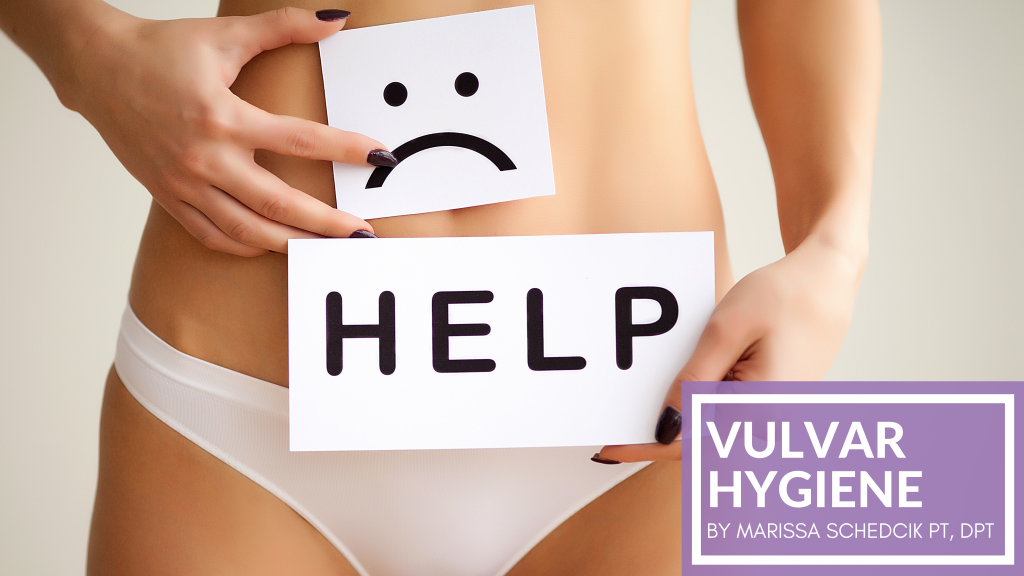Hey ladies! Listen up and make sure to read this blog about VULVAR HYGIENE! Yes, you read it right: VULVAR HYGIENE!
Personally, I feel like I have evaluated and treated many women that do not know what proper vulvar hygiene looks like and how simple it is! With that being said, we all come from different walks of life and were taught or heard various things that we thought were fact, but they are actually false. Therefore, I want to expose others to bad and good practices for vulvar hygiene in order to allow for normal vaginal/vulvar function for everyone! 
 Avoid douching! This common practice is actually NOT helpful with vaginal/vulvar cleanliness. This practice can disrupt the “flora”/pH balance and can cause increased irritation.
Avoid douching! This common practice is actually NOT helpful with vaginal/vulvar cleanliness. This practice can disrupt the “flora”/pH balance and can cause increased irritation.
 Do use 100% cotton underwear. Try to avoid wearing nylon, acetate, thongs, manmade fibers, etc. if you have delicate skin. Cotton underwear allows the tissues to “breathe”.
Do use 100% cotton underwear. Try to avoid wearing nylon, acetate, thongs, manmade fibers, etc. if you have delicate skin. Cotton underwear allows the tissues to “breathe”.
 Do not wear leggings, pantyhose, athletic shorts or biker shorts for a long period of time, ESPECIALLY during the summer! This can trap air and heat, creating an environment that could irritate the vulva.
Do not wear leggings, pantyhose, athletic shorts or biker shorts for a long period of time, ESPECIALLY during the summer! This can trap air and heat, creating an environment that could irritate the vulva.
 Do clean your vulva regularly, but ONLY with warm water! Soap, scented oils, bubble baths, powder, sanitary wipes, scented washes, etc. are NOT healthy and will more than likely disrupt the pH balance of the vagina. These could also cause irritation/redness to the vulvar tissues.
Do clean your vulva regularly, but ONLY with warm water! Soap, scented oils, bubble baths, powder, sanitary wipes, scented washes, etc. are NOT healthy and will more than likely disrupt the pH balance of the vagina. These could also cause irritation/redness to the vulvar tissues.
 Avoid fabric softeners (including dryer sheets) and detergents with enzymes (amylase, lipase, protease and cellulose). Also avoid using too much laundry detergent.
Avoid fabric softeners (including dryer sheets) and detergents with enzymes (amylase, lipase, protease and cellulose). Also avoid using too much laundry detergent.
 Do use mild soap/detergent (like Woolite®) for washing underclothes to decrease irritation. Also consider gently rinsing underclothes after washing or double-rinse.
Do use mild soap/detergent (like Woolite®) for washing underclothes to decrease irritation. Also consider gently rinsing underclothes after washing or double-rinse.
There are many ways to decrease irritation, but it all comes down to what consists of your daily routine. That is how a pelvic floor physical therapist can help to assess what could be triggering vaginal/vulvar dysfunction and follow up by integrating daily strategies to decrease exposure to triggers. If you have or are currently participating in any of the  ’s, please come visit us, so we can help you to establish a natural and healthy environment for your pelvic organs!
’s, please come visit us, so we can help you to establish a natural and healthy environment for your pelvic organs!


